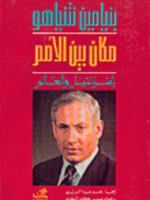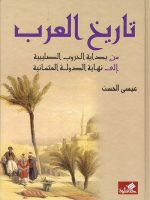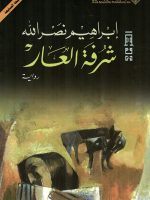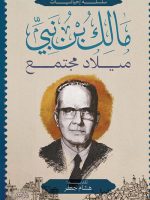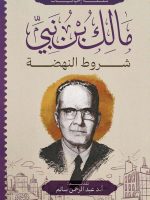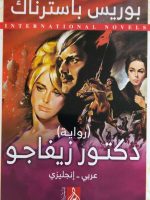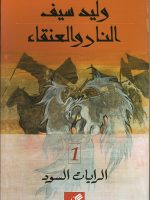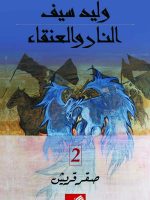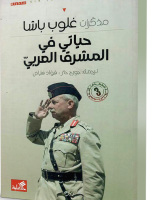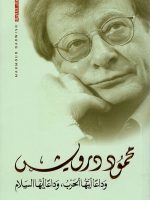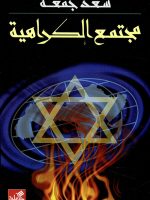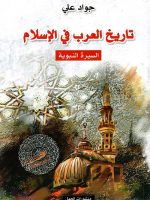s the set of activities that are associated with making decisions in groups, or other forms of power relations among individuals, such as the distribution of status or resources. The branch of social science that studies politics and government is referred to as political science.
-
1984
د.ا5.11It is a dystopian novel that deals with comprehensive government tyranny and constant surveillance in a fictional world ruled by a single party that seeks complete control over the individual.
د.ا5.68 -
A Journey to India
د.ا6.00A novel that explores the cultural clash between the British and Indians under colonialism, through a journey that reveals the fragility of human relationships.
Arabic/English -
A Place Among the Nations Israel and the World
د.ا12.78Explores international relations and their impact on societies, analysing states’ interactions with globalisation and modern conflicts from a political and cultural perspective.
د.ا14.20 -
All the King’s Men
د.ا12.00A political novel that tells the story of the rise and fall of a politician in a US state, highlighting corruption and power.
-
Americanly My Empire Was Mine
د.ا10.00This novel addresses the shock of the Arab intellectual in American society through a personal experience filled with questions and conflicts.
-
Amr ibn al-Aas
د.ا3.20The book “Amr ibn al-Aas” by Al-Akkad provides an analysis of the personality of the political and military leader who played a pivotal role in conquering Egypt and establishing the foundations of the Islamic state with intelligence and shrewdness.
د.ا4.26 -
Arab History from the Beginning of the Crusades to the End of the Ottoman Empire
د.ا14.00The book provides a comprehensive overview of Arab history from the Crusades to the fall of the Ottoman Empire and its political and social transformations.
د.ا17.00 -
Ashes of Wars Secrets of the Post Gulf
د.ا10.65It reveals the political and military conflicts that followed the Gulf War, highlighting the regional and international repercussions that changed the balance of power in the Middle East.
د.ا12.07 -
Balcony of Shame
د.ا5.00It is a novel that tells a story about the tragedies of wars and the Palestinian diaspora, and addresses issues of shame and betrayal in a complex political and social context.
د.ا5.50 -
Birth of a Society
د.ا3.55A book that reviews the development of human societies through a historical and social study of the founding stage and the transformations that led to the emergence of civilizations
د.ا4.26 -
Conditions of Renaissance
د.ا4.26A book that deals with the components of the renaissance of Islamic societies, focusing on self-reform and working to achieve progress and liberation.
د.ا4.97 -
Doctor Zhivago
د.ا4.97Arabic/English
It is a historical novel that immerses the reader in the life of a Russian doctor and poet during the Russian Revolution, and reviews his emotional and human struggles in light of social and political changes.د.ا5.68 -
Fire and the Phoenix The Black Banners Part One
د.ا9.00A historical-philosophical novel that explores the transformations of the nation through the symbolism of fire and the phoenix within an intellectual and political context.
د.ا10.00 -
Fire and the Phoenix The Falcon of Quraysh Part Two
د.ا12.00This book delves into a historical and intellectual drama that explores the struggles of rise and fall in early Andalusia, through an epic narrative rich with philosophical contemplations.
د.ا13.00 -
Glubb Pasha’s Memoirs My Life in the Arab East
د.ا9.94Arabic / English
The memoirs of British General Edmund Allison, who served in the Levant and provided a personal view of the political and social events in the region during the First World War.د.ا11.36 -
Goodbye War Goodbye Peace
د.ا5.68It is a deep poetic contemplation by Mahmoud Darwish about conflict and wars, expressing the suffering of the homeland and humanity in the shadow of the lost peace and the ongoing war.
د.ا6.39 -
Heresies Part Two Secularism as an Islamic Islamic Problem
د.ا9.50The book explores the issue of secularism in the Islamic context, analyzing the interaction of Islamic thought with this concept in the context of modern civilization.
د.ا10.00 -
History of the Arabs in Islam The Prophet’s Biography
د.ا6.39It deals with the life of the Prophet Muhammad, may God bless him and grant him peace, and presents the history of the Arabs during the Islamic period through his biography and the events of his era.
د.ا7.81


